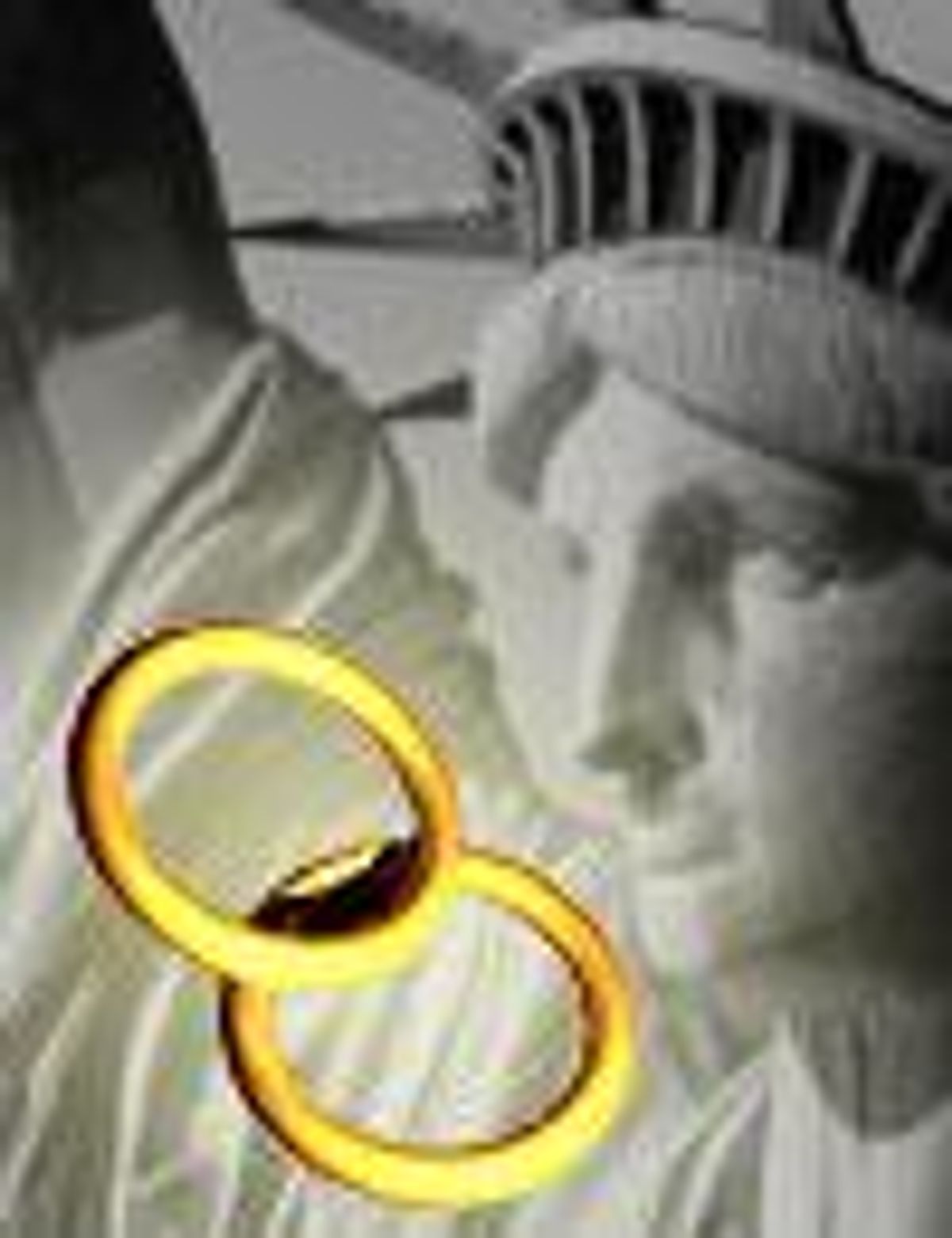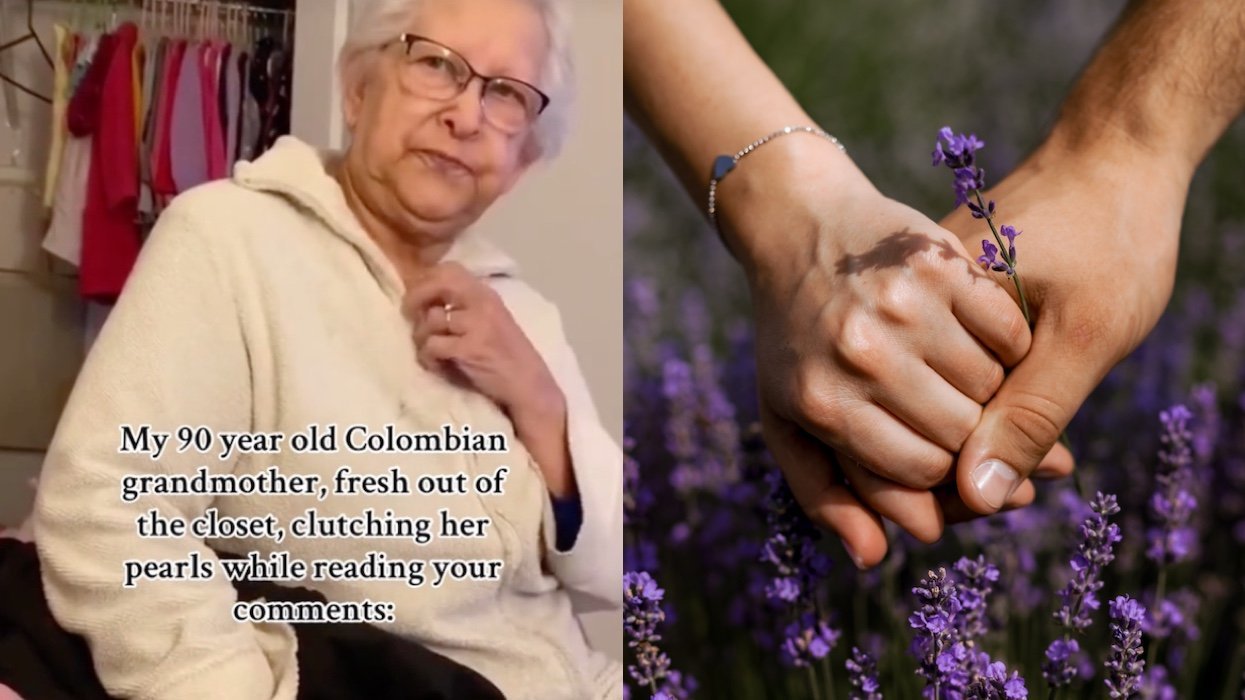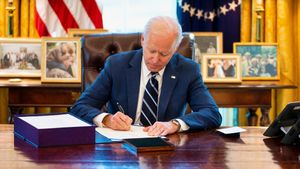Same-sex
marriages legally performed elsewhere will be recognized in
New York State in response to a state court ruling
this year, Gov. David Paterson's spokeswoman said
Wednesday.
State agencies,
including those governing insurance and health care, must
immediately change policies and regulations to make sure
''spouse,'' ''husband,'' and ''wife'' are clearly
understood to include gay couples, according to a memo
sent earlier this month from the governor's counsel.
Gay marriage is
not legal in New York, and the state's highest court, the
Court of Appeals, has said it can only be legalized by the
legislature. But the memo, based on a February 1 New
York Appellate Division court ruling, would recognize
the marriages of New Yorkers who are legally wed
elsewhere.
The appellate
judges determined that there is no legal impediment in New
York to the recognition of a same-sex marriage. The state
legislature ''may decide to prohibit the recognition
of same-sex marriages solemnized abroad,'' the ruling
said. ''Until it does so, however, such marriages are
entitled to recognition in New York.''
Massachusetts is
currently the only U.S. state that recognizes same-sex
marriage, but its residency requirements would bar New
Yorkers from marrying there.
New York
residents could instead flock to California, where gay
couples will be able to wed beginning June 17 --
unless that state's supreme court decides to stay its
own ruling. Upon their return home, in the eyes of the
state, their unions would be no different from those of
their heterosexual neighbors.
Gay couples could
also travel outside the country to marry in Canada, for
example.
Paterson
spokeswoman Erin Duggan said the May 14 memo is intended to
guide the actions of state agencies. Agencies have until
June 30 to report back to the governor's counsel on
how, specifically, the directive will change existing
state benefits and services for gay couples.
The memo states
that failure to include gay marriages in the dispensing
of state services such as health care benefits could violate
state human rights law. The agencies could face
sanctions for any violations, the memo warns.
The agency
changes can be instituted through internal memos or changes
in regulations and would not require legislative
action, Paterson counsel David Nocenti said in the
memo, which was first reported by The New York Times.
The February
appellate decision involved the case of a woman whose female
partner was denied health benefits by her employer even
though she had been legally married in Canada.
Gay rights
advocates have sought recognition for gay marriages so
couples could share family health care plans, receive
tax breaks by filing jointly, enjoy stronger adoption
rights, and inherit property. Most of these advocates
rejected civil unions, thought to be a compromise,
because the unions lacked the legal protections of
marriage. (Michael Gormly, AP)

















































































